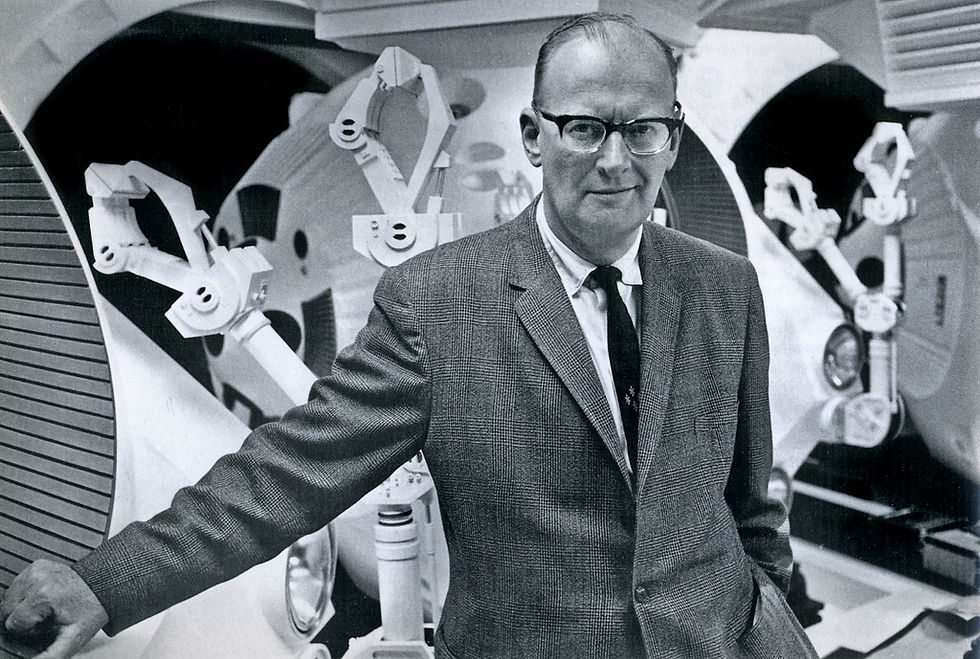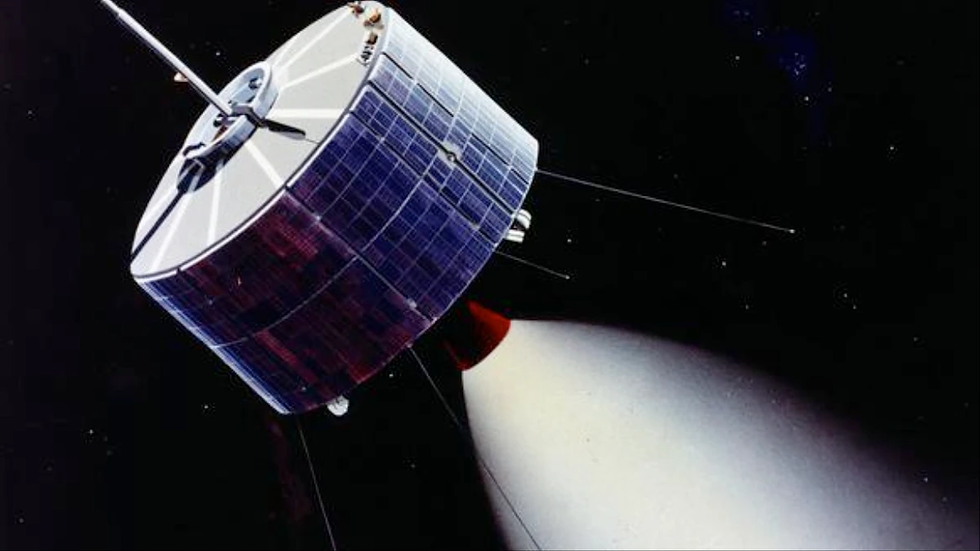
The invention or more precisely the development of #wireless communication is a boon to humankind. There has been an invariable necessity to have mobility and portability when it provides access to information.
It so happens sometimes that the gathering of information happens more in communication than in a study. Wireless communication as the name means requires none or a minimum number of hardware devices to communicate between different places.
Communication solely doesn't mean conversing, it also is the means of exchanging data or information in digital, encoded, visual and alternative formats. Wireless communication is the transfer of information in the form of #electromagnetic waves or signals between two places that are not connected by an electrical conductor.
Satellite Communication

It is an entity that revolves around another entity. As we know, the moon is a natural satellite of the earth. The field of interest is a communication satellite, designed and manufactured by humans. It is an artificial satellite. It is nothing but a repeater station in space used for #telecommunication, radio, and television signals.

The mode of a satellite communication system is through the stations built. It receives information in the form of signals, processes the data, and converts it to another form (transducer action) to transmit to another station. The stations are built on earth.

DID YOU KNOW?

The idea of the satellite communication system is inferred through space sparked an article written by Arthur C Clarke, namely, "Extraterrestrial Relays" in 1945. Then the first satellite was "Sputnik" launched into #space in 1957.
How does satellite communication work?
The satellite communication devices are the ground segment which consists of fixed or mobile transmission, reception, and secondary equipment, and the space segment. The transmission happens when a signal is sent from the earth and is received by satellite upon amplification. The same happens when information is transmitted back.
Terminologies to be known

Uplink frequency: Frequency at which the ground station is communicating with the satellite.
Downlink frequency: Frequency at which the #satellite transponder converts the signal and sends it to the station on earth.
One of the main means of communication associated with satellite communication is mobile communications which provide two-way data communication service using portable wireless technology. Geostationary orbit (GEO), medium #earth orbit (MEO) or low earth orbit (LEO) satellites are the ones where signals from the handset are relayed to the ground station, interfaced with a public telephone system or internet.
Communication satellites may be owned by a government or private organization, and presently there are more than 2000 communication satellites in the sky used for #internet, military operations, television, telephone, radio, etc.
Types of communication satellites
When satellites are accelerated, the shock is generated to a very high level (28,100 km/hr velocity). There are immense temperature conditions in the environment. The satellite has to withstand these conditions until its operation life is not completed, which is approximately two decades.
Also, satellites have to be light and have to operate in a #vacuum of space with no prospect of maintenance or repair. Communication satellites are categorized based on the orbit in which they are placed.

1. Geostationary satellite (GEO)
They are 36,000 km from the earth’s surface.
Appear to be still in the sky
At least 3 GEOs needed for global coverage
These satellites are used for global communications, and weather forecasting and have several important defense and intelligence applications.
In 1964, the first geostationary satellite, Syncom 3, was launched and was used for television coverage of the 1964 summer Olympics, across the pacific.

2. Medium earth orbit satellite (MEO)
Situated between two Van Allen belts
Lower Van Allen belt – A radiation belt is a zone of energetic charged particles that originate from the solar wind and are captured by the magnetic field of a planet and held by it.
Orbital altitude 2000 km to 36,000 km.
For global coverage, as high as 10 MEOs are required.
The most common use is for navigation such as GPS.
In 1962, Telstar was launched. The MEO satellite was designed to facilitate telephone #signals at high-speed.

3. Low earth orbit satellite (LEO)
Situated below Van Allen belt
Orbital altitude: 160 km to 2000 km
At least 50 LEOs are required for global coverage.
Mainly used for imaging applications.
Mobile satellite communication
#Mobile satellite communication is widely used by commercial users as it has the potential to provide an infrastructure independent of terrestrial systems. The type of devices used to connect to other phones or devices using radio signals through orbiting satellites and hence are not limited to areas covered only by the cell phone networks.
The defense personnel, research centers or observatories set up in remote areas use satellite communication. The satellite mobile used for mobile satellite communication is also called terminal. Mobile satellite communications act as bridges for several new specialized markets in telecommunications.
Satellite communication conclusion
Communication between largely spaced #geographical points happens when the communication satellites relay the signals around the curvature of the Earth. A wide range of radio and microwave frequencies are used to communicate. To avoid signal interference, frequency ranges, or "bands" are allocated by certain organizations that are only to be used.
It is tough to imagine our lives without satellite #communication as it will be impossible to execute our tasks of gathering and uploading data over different geographical areas. A simple voice or media message would have been tough to be delivered from place to place. Satellite communications hence play a vital role in our daily life.
See also:
Order Electronics Projects
Want us to guide you through your project or make the project for you? Click on the button below or reach out to us via Call/WhatsApp at (+91) - 7600948607
You can -
Order Basic Electronics Projects
Order Embedded Systems Projects
Order IoT Projects
Order FPGA Projects
Order VLSI Projects
Order Image Processing Projects
Order Matlab Projects
Order TinkerCAD Projects
Order Proteus Projects
Click on the button below to fill out the project inquiry form -
Create Various Projects
Check out our Free Arduino Projects Playlist - Arduino Projects
Check out our Free Raspberry Pi Projects Playlist - Raspberry Pi Projects
Check out our Free TinkerCAD Projects Playlist - TinkerCAD Projects
Check out our Free IoT Projects Playlist - IoT Projects
Check out our Free Home Automation Projects Playlist - Home Automation Projects
Check out our Free NodeMCu Projects Playlist - NodeMCu Projects
Follow us -
Please do follow us i.e. #learnelectronicsindia to get daily updates about new blogs, videos, courses, products, offers, competitions, quizzes, and Internship Opportunities.

Learn Electronics India has outdone themselves with this blog on Satellite Communication. I'm amazed by the depth of knowledge presented here. It's evident that the author knows their stuff and is passionate about sharing it with the world. I've gained a newfound appreciation for satellite communication, all thanks to this fantastic blog. Great job.
LearnElectronics India simplifies complex concepts beautifully. Thank you!